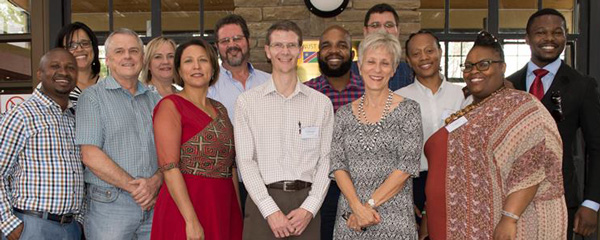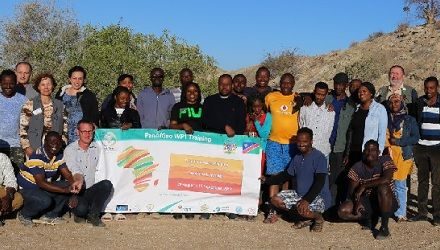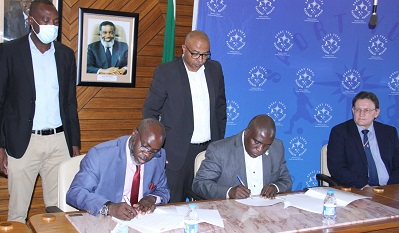
Namibia University of Science and Technology hosts successful research conference

The Namibia University of Science and Technology (NUST) hosted the 24th Southern African Association of Institutional Research (SAAIR) Conference from 23 to 26 October, under the theme: “Rethinking University Engagement in Africa.”
NUST is a member of SAAIR, a dynamic association of about 25 universities which promotes institutional research, training and development, and the exchange of information at universities. The SAAIR Conference is held annually for scholars, academics and higher education officials, including Institutional Researchers (IRs) and experts.
More than 130 participants from 23 different universities in the SADC region attended the Conference. Dr Jamil Salmi, a renowned global tertiary education expert was the guest speaker at the gathering.
Salmi has globally provided advice on tertiary education development, financing reforms and strategic planning to governments and university leaders in about 90 countries. He wrote the first World Bank paper on higher education reform in 1994 and he was the principal author of the Bank’s 2002 Tertiary Education Strategy entitled ‘Constructing Knowledge Societies: New Challenges for Tertiary Education.’
At an Open Campus meeting held ahead of the Conference, Dr Salmi gave a presentation on “Establishing World-Class Universities”. He provided a global perspective on the experiences of a wide range of national university systems, including Brazil, China, India, Singapore, Malaysia and Mexico.
“Universities do not operate in a vacuum, they are located somewhere, and what happens in that specific environment has a big influence on their development. Inevitably, political and economic stability has an impact on the quality of students and researchers an institution attracts in its pursuit of world-class standards,” Salmi said.
He added that world-class universities are the product of a combination of three main factors: abundant resources, concentration of talent, and favourable governance.











































